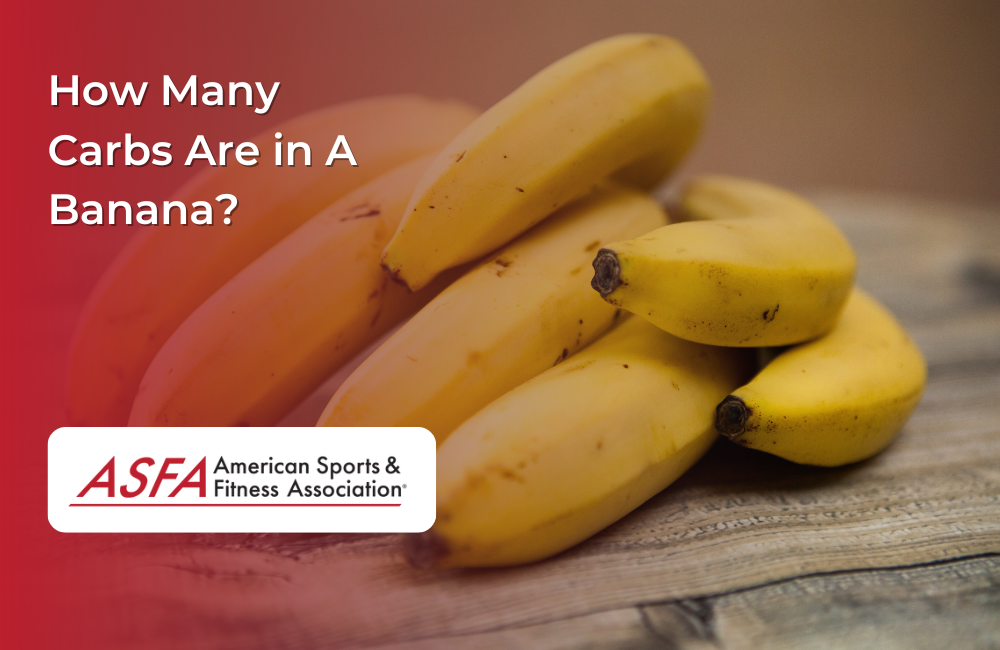The banana fruit is known for its natural sweetness, high energy content, and nutrient density. They are a great source of carbohydrates, making them a preferred choice for fueling workouts, replenishing glycogen, and supporting overall health. Understanding the carbohydrate content of bananas helps in meal planning, managing energy intake, and balancing macronutrients.
Banana Nutrition Facts
One medium-sized banana (118g) is a nutritional powerhouse, providing approximately 105 calories and 27 grams of carbohydrates. This includes 14.4 grams of natural sugars, which contribute to its sweet taste. Additionally, a medium-sized banana offers 1.3 grams of protein and a significant 422 milligrams of potassium. Potassium is a vital mineral and electrolyte that helps maintain fluid balance, muscle function, and nerve signaling in the body. Bananas are also a good source of dietary fiber, vitamin C, and magnesium, making them a well-rounded addition to a healthy diet.
Carbohydrate Content of Bananas by Size
The number of carbs in a banana varies depending on size and ripeness. On average, one medium banana contains around 25-30 grams of carbohydrates.
Carb Content Based on Banana Size
-
Small banana (6 inches or less): ~20-23 grams of carbs
-
Medium banana (7-8 inches): ~25-30 grams of carbs
-
Large banana (9 inches or more): ~30-35 grams of carbs
In addition to carbohydrate content, it's important to consider how many calories are in a banana. A medium banana typically contains around 105 calories.
The riper a banana, the higher the sugar content and the lower the resistant starch. As bananas ripen, starches convert into natural sugars, making them sweeter and easier to digest.
Types of Carbohydrates in Bananas
Bananas contain three main types of carbohydrates:
-
Starches – Found in unripe bananas, providing slower digestion and longer-lasting energy.
-
Natural Sugars – Includes glucose, fructose, and sucrose, which provide quick energy.
-
Fiber – Supports digestion, blood sugar balance, and satiety. A medium banana contains about 3 grams of fiber.
Mashed banana can also be used as a healthy and delicious alternative to traditional spreads like jam, or as a low-calorie dessert option when frozen.
Impact on Blood Sugar
Bananas have a moderate glycemic index (GI) of 48-54, meaning they cause a gradual increase in blood sugar levels rather than a rapid spike. This is partly due to the fiber content in bananas, which slows down the digestion and absorption of sugars. As a result, eating a banana can provide a steady source of energy without drastically affecting blood sugar levels. To further stabilize blood sugar, it’s beneficial to pair a banana with a source of protein or healthy fat, such as nuts or yogurt. This combination helps to slow digestion and maintain balanced blood sugar levels.
Health Benefits
Bananas are more than just a tasty snack; they offer a range of health benefits. They are an excellent source of potassium, which is crucial for maintaining a healthy balance of water in cells and counteracting the effects of excess dietary sodium. The fiber in bananas supports digestive health by promoting regular bowel movements and feeding beneficial gut bacteria. Unripe bananas, in particular, contain resistant starch, which acts as a prebiotic, fostering the growth of beneficial microbes in the digestive tract. These microbes produce short-chain fatty acids (SCFA), which may help prevent chronic diseases. Additionally, bananas are rich in antioxidants and phytochemicals, which protect against oxidative stress and inflammation, contributing to overall health and well-being.
How Bananas Fit into Different Diets
For Active Individuals and Athletes
-
Bananas are an excellent pre- or post-workout carb source due to their natural sugars and easy digestibility.
-
A ripe banana helps replenish glycogen stores after exercise due to its higher sugar content.
For Low-Carb Diets
-
Bananas may not fit into strict low-carb or ketogenic diets due to their higher carbohydrate content.
-
Alternative lower-carb fruits include berries, avocados, and melons.
For Balanced Diets
-
Bananas can be included in moderation as part of a well-rounded diet.
-
Pairing a banana with protein or healthy fats (like nuts or yogurt) helps slow digestion and prevent blood sugar spikes.
-
Ripe bananas can be used to make banana bread, a delicious and nutritious baked good that can be enjoyed as part of a balanced diet.
Conclusion
A medium banana contains around 25-30 grams of carbohydrates, with variations depending on size and ripeness. While higher in carbs than some fruits, bananas provide quick energy, fiber, and essential nutrients that support overall health. Whether included in a workout routine, balanced meal plan, or as a natural snack, bananas offer a nutritious and convenient carbohydrate source.
FAQs
Are bananas high in sugar?
Bananas contain natural sugars, but they also provide fiber, which helps moderate blood sugar levels.
Can I eat bananas on a low-carb diet?
Bananas are relatively high in carbs, so they may not fit into strict low-carb or keto diets, but they can be enjoyed in moderation in a flexible diet plan.
Do green bananas have fewer carbs than ripe bananas?
Yes, unripe (green) bananas contain more resistant starch and fewer sugars, making them lower on the glycemic index.
How do bananas compare to other fruits in carbs?
Bananas have more carbs than berries and citrus fruits but fewer than high-sugar tropical fruits like mangoes and pineapples.
Can bananas help with weight loss?
Bananas can be part of a healthy diet when consumed in moderation, especially when combined with protein and fiber-rich foods to support satiety.





